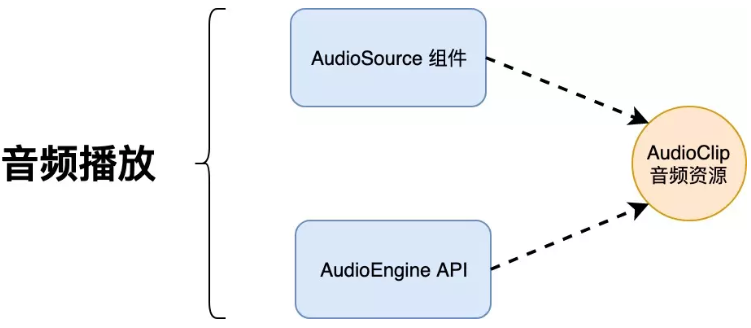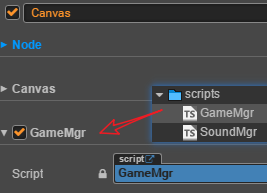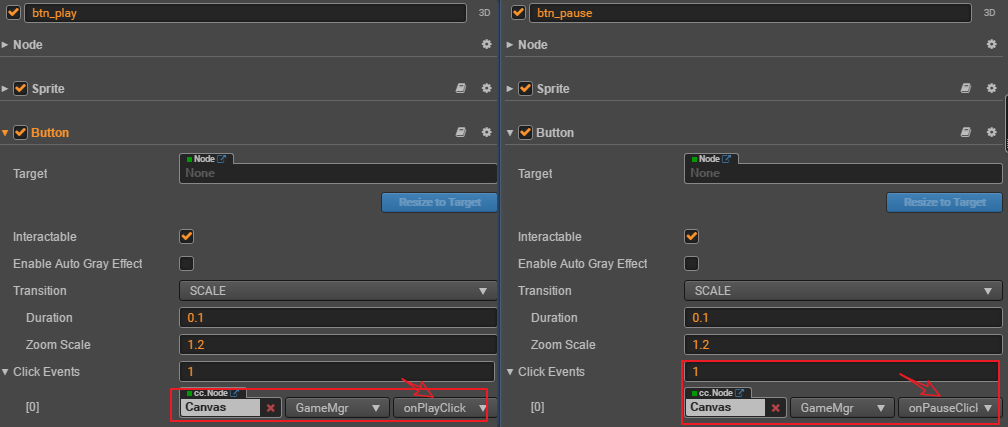您好,登录后才能下订单哦!
使用CocosCreator怎么进行音效处理?很多新手对此不是很清楚,为了帮助大家解决这个难题,下面小编将为大家详细讲解,有这方面需求的人可以来学习下,希望你能有所收获。

Cocos Creator 提供两种音频播放方式,AudioEngine 与 AudioSource 都能播放音频,它 们的区别在于 AudioSource 是组件,可以添加到场景中,由编辑器设置。而 AudioEngine 是 引擎提供的纯 API,只能在脚本中进行调用。
共同点:本质都是处理 AudioClip 音频资源,需要在 Cocos Creator 编辑器中挂载组件。
个人建议使用这个来替换 AudioSource 组件播放声音,接口齐全,测试有效,可以自己 封装一个类似 AudioSource 组件的脚本来使用。
方式一:使用 AudioSource 组件播放
创建一个空节点,在这个空节点上,添加一个 其他组件 -> AudioSource
在脚本上预设好 AudioSource,并且根据实际需求,完善脚本的对外接口,如下
cc.Class({
properties: {
audioSource: {
type: cc.AudioSource,
default: null
},
},
play() {
this.audioSource.play();
},
pause() {
this.audioSource.pause();
},
});方式二:使用 AudioEngine 播放
在脚本内定义一个 audioClip 资源对象,如下示例中 properties 对象内。
直接使用 cc.audioEngine.play(audio, loop, volume); 播放。如下示例中 onLoad 中。
cc.Class({
properties: {
audio: {
default: null,
type: cc.AudioClip
}
},
onLoad() {
this.current = cc.audioEngine.play(this.audio, false, 1);
},
onDestroy() {
cc.audioEngine.stop(this.current);
}
});AudioEngine 播放的时候,需要注意这里的传入的是一个完整的 AudioClip 对象(而不 是 url)。所以我们不建议在 play 接口内直接填写音频的 url 地址,而是希望大家先定义 一个 AudioClip,然后在编辑器内将音频拖拽过来。
【1】组件 AudioSource
play ( ) 播放音频剪辑。
stop ( ) 停止当前音频剪辑。
pause ( ) 暂停当前音频剪辑。
resume ( ) 恢复播放。
【2】声音系统 cc.audioEngine
// 背景音乐,循环
cc.audioEngine.playMusic(source);
cc.audioEngine.stopMusic(source);
// 短音效
cc.audioEngine.playEffect(source);
cc.audioEngine.stopEffect(source);
上面的第一种方法原生平台有很多 Bug,所以我们的游戏都用的第二种方法播放声音。
const {
ccclass,
property
} = cc._decorator;
@ccclass
exportdefaultclassSoundMgr {
sound_path: string = 'res/sounds/';
// sound 中保存的是音乐的名称和音频对象的 key-value 键值对
sounds: {
[key: string]: any
} = {};
enabled: boolean = true;
music: string = '';
// 单例模式
protectedstatic instance: SoundMgr;
publicstatic getInstance(): SoundMgr {
if (!this.instance) {
this.instance = newSoundMgr();
}
returnthis.instance;
}
// 添加声音资源
addSound(key: string, clip: cc.AudioClip) {
this.sounds[key] = clip;
}
playFx(fxName: string) {
if (!this.enabled) return;
cc.audioEngine.playEffect(this.sounds[fxName], false);
}
playMusic(musicName: string) {
this.music = musicName;
if (!this.enabled) return;
cc.audioEngine.playMusic(this.sounds[musicName], true);
}
stopMusic() {
cc.audioEngine.stopMusic();
}
setEnabled(enabled: boolean) {
this.enabled = enabled;
if (this.enabled) {
this.playMusic(this.music);
} else {
cc.audioEngine.stopAll();
}
}
getEnable() {
returnthis.enabled;
}
}通过 Cocos Creator 可视化编辑工具,我们设置游戏场景和资源如下:

因为 sounds 我们是通过代码动态加载,故我们将保存所有声音文件的 sounds 文件夹放 到 resources 文件夹内(如上图)。
然后,新建 GameMgr.ts,挂载到 Canvas 节点上。

onst {
ccclass,
property
} = cc._decorator;
importSoundMgrfrom "SoundMgr";
@ccclass
exportdefaultclassGameMgrextends cc.Component {
loadSounds() {
// 注意通过代码动态加载的资源必须放到 resources 文件夹下
cc.loader.loadResDir('sounds', cc.AudioClip, function(err, clips) {
console.log("load clips:", clips);
if (err) {
console.log("err:", err);
}
for (let i = 0; i
SoundMgr.getInstance().addSound(clips[i].name, clips[i]);
}
});
}
onLoad() {
this.loadSounds();
console.log("sounds:", SoundMgr.getInstance().sounds);
}
onPlayClick() {
console.log("play");
SoundMgr.getInstance().playMusic('spring_music');
}
onPauseClick() {
console.log("pause");
SoundMgr.getInstance().stopMusic();
}
}在 GameMgr 自定义组件的 onLoad 方法中,调用 loadSounds 加载游戏中所需要的所有 声音资源。同时在 GameMgr.ts 中提供播放和暂停接口方法 onPlayClick 和 onPauseClick 方法。
供播放和暂停按钮调用。


声音资源全部加载成功,并且点击播放和暂停按钮,都能测试通过。

注意:如果音频播放相关的设置都完成后,在部分浏览器上预览或者运行时仍听不到声 音,那可能是由于浏览器兼容性导致的问题。例如:Chrome 禁用了 WebAudio 的自动播放,而音频默认是使用 Web Audio 的方式加载并播放的,此时用户就需要在 资源管理器中选中音频资源,然后在 属性检查器 中将音频的加载模式修改为 DOM Audio 才能在浏览器上正常播放。

看完上述内容是否对您有帮助呢?如果还想对相关知识有进一步的了解或阅读更多相关文章,请关注亿速云行业资讯频道,感谢您对亿速云的支持。
免责声明:本站发布的内容(图片、视频和文字)以原创、转载和分享为主,文章观点不代表本网站立场,如果涉及侵权请联系站长邮箱:is@yisu.com进行举报,并提供相关证据,一经查实,将立刻删除涉嫌侵权内容。